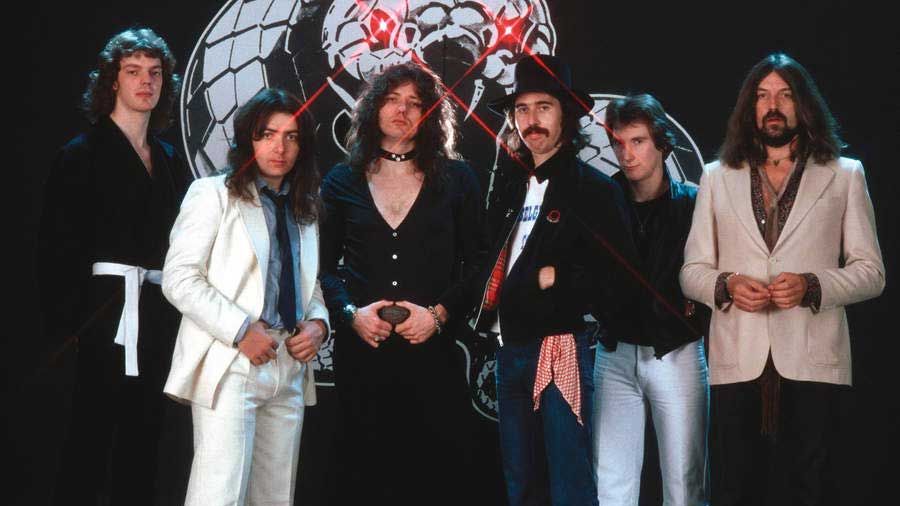Bernie Marsden knew Whitesnake were on to a winner with their cover of Ain’t No Love In The Heart Of The City the very first time they played it. It was 1978, and the guitarist and his bandmates had just laid down the slow-burning version of R&B singer Bobby ‘Blue’ Bland’s four-year-old single that would appear on their debut Snakebite EP. Now they were debuting it in public.
“There were three hundred or four hundred people there,” Marsden recalls of the show, “and two hundred of those sang along to it, even though they’d never heard it before. People immediately accepted it.”
The band were so new at that point in their career that they were still known as David Coverdale’s Whitesnake. But, as the song’s instant impact proved, Ain’t No Love In The Heart Of The City helped put them on the map.
It was Marsden who brought the song to the table in the first place. He’d been hanging around at the offices of Anchor Records in Soho’s Wardour Street, when someone gave him a copy of Bobby ‘Blue’ Bland’s album Dreamer that the label had been involved in putting out a few years earlier.
Bland had been kicking around the music scene for years – he’d made his first recordings in the 1950s. Ain’t No Love In The Heart Of The City, his album’s opening track, had an undercurrent of soul-deep weariness beneath the relatively upbeat music, that immediately caught Marsden’s attention.
“I knew this would be a great song for David to sing,” Marsden says. “He knew about Bobby Bland, but I don’t think he was that familiar with the song. He could see straight away that he could stamp his voice on it.”
The band – at the time also including guitarist Micky Moody, bassist Neil Murray, drummer David Dowle and keyboard player Phil Colley – slowed down Bland’s song, and added an introductory guitar lick that provided an instant hook.
“That first studio version is so slow,” says Marsden. “It’s hard to play like that in the studio because you’re vibing off each other. There was so much energy in Whitesnake at that time.’”
Marsden credits producer Martin Birch with taking the song to the next level.
“He wanted to feature both guitars and get a nice atmosphere going with it,” he says. “If he hadn’t been with us, it wouldn’t have sounded remotely like it did. He made a hell of a difference.”
No less crucial to the song’s success was Coverdale’s impassioned vocals, amplifying the existential loneliness of the original without descending into blues-rock bluster.
“It’s unbelievable,” says Marsden. “That was the template for everything, as far as I was concerned: ‘If you can sing like that, mate…’”
Whitesnake began playing Ain’t No Love right away, and the song instantly became a crowd favourite. Also in place from the start was what Marsden calls “the singalong bit” – the section where audiences at gigs took over the vocals from Coverdale. “The Whitesnake Choir,” as Marsden puts it.
The definitive version of Whitesnake’s take on Ain’t No Love In The Heart Of The City was recorded at London’s Hammersmith Odeon in November 1978, and first appeared on the Japan-only Live At Hammersmith album in 1980. But it was when that LP was repackaged as part of Live… In The Heart Of The City album later the same year that it became one of the great songs – cover version or otherwise – of the era.
“It’s incredible standing there, hearing people singing it back at you,” Marsden says of playing the song live. “What was really moving for me was the first time we went to Japan. There we were, in the middle of Tokyo, playing this song we’d recorded eighteen months earlier, with a couple of thousand people singing it back in broken English.”
Marsden acknowledges that Whitesnake made the song their own, although he stresses that they couldn’t have made it without Bobby ‘Blue’ Bland. The guitarist finally got to meet the singer backstage at a gig in Brighton in 1990.
“He said: ‘Are you the guy from The Whitesnakes? You did a good job.’ I said: ‘Thank you, Mister Bland, we couldn’t have done it without you.’ And he looked at me with a very straight face and went: ‘I know one thing: you guys made a shitload more money than I ever did from that.’”

